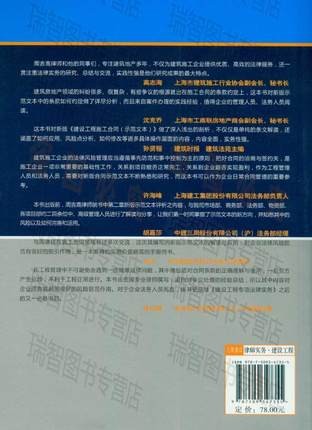China real estate laws
Post on: 14 Апрель, 2015 No Comment

On March 16, 2007, China adopted a new Property Law, set to become effective on October 1, 2007. This post will be the first in a fairly long series of posts explaining Chinas real estate laws. This first post is meant to serve as a general overview of Chinas real property laws.
Ownership of real property in China is based on the Constitution as revised in 2004, on the new Property Law and on three key laws: The Land Management Law (Adopted 1986, amended 2004), The Urban Real Estate Management Law (adopted 1994), and The Rural Land Contract Law (adopted 2002). The new Property Law did not repeal these laws, but it does make them subject to the new Property Law and the new Property Law will control where there are differences. Regulations supplement these statutes.
Chinas Constitution clearly distinguishes between land and buildings/fixtures located on land. Only the state can own land. Ownership of buildings was an unclear concept until the new Property Law provided that buildings and fixtures on land are owned separately from the land on which they sit.
Urban land in China is owned by the state. The State Council has the authority to represent the ownership interests of the state in land.
Rural land in China is owned by rural cooperatives and it is reserved exclusively for agricultural purposes. The only permitted use of rural land is for farming and residences for farmers, together with essential buildings such as schools, hospitals and agricultural support facilities. All land that will be used for commercial purposes or for non-farmer residences must first be transferred to the national government.
All commercial and residential development must be conducted on state land. However, land cannot be sold. Instead, the state has the power to transfer the use right in land for a fee. Use rights are transferred for a specific period of time: residential property for 70 years; industrial/commercial property for 50 years; and recreational property for 40 years. Once acquired, land use rights can be transferred to third parties. However, such transfers are subject to restrictions on use provided in the original contract of transfer and are subject to the original time limit of the basic grant. At the end of the time period, in principal the land use right terminates.
For residential land, the new Property Law provides that the land use right is automatically extended at the end of its term. This is a major change in the law. However, the new Property Law does not state whether the extension is for another 70 years or for some other term nor whether payment of a land use right renewal fee will be required.
For industrial, commercial and recreational land, the basic rule is that the holder of the land use right can petition for extension of the right. If no such request for renewal is made, the land use right terminates and the ownership of any buildings or fixtures located on the land reverts back to the state. There are no specific provisions on the term for any such renewal nor any on whether a new land use fee must be paid on renewal.
Any natural or legal Chinese person has the right to own buildings located on urban land. This ownership is clearly separate from the ownership of the underlying land. Ownership of urban buildings is recorded in the local real estate register. However, ownership of buildings is subject to the underlying land use right of the land on which it sits, both in terms of limitations on use and on the time limit of the underlying land use right. Buildings can be freely purchased and sold, subject to the underlying land use right.
The land use right automatically transfers when the ownership of a building is transferred. As a result of this, purchasers of buildings in China acquire what we could call a defensible ownership interest. The ownership right in the building/fixture is absolute, but it is subject to the time and use limitations imposed by the underlying land use right.
This system results in a great deal of uncertainty about real estate ownership in China. What happens when the time limit for the land use right comes to an end? Will the state act reasonably in granting extensions and in limiting the imposition of new fees, or will the state see this as an opportunity to earn a windfall profit from new fees? Will the state seize productive commercial property with no compensation? Will the state seek to engage in social engineering by restructuring ownership interests to accommodate new conditions?
The uncertainty concerning the land use right time limit was partially resolved in the new Property Law by the provision that such a right in residential property renews automatically. However, the failure to address the period of the renewal and the rules concerning new fees still leaves significant uncertainty. Nothing has been done to clarify the issue regarding commercial, industrial or recreational real estate.

On the other hand, the basis of the new Property Law is that persons have an absolute ownership right to buildings and fixtures on land. This right has all the features of classic ownership, including the right of disposal (sale), inheritance and gift. The new Property Law makes the critical decision that land use rights and ownership rights of buildings/fixtures are property rights and not contract rights. This is a major revolution in Chinese law that likely will have far reaching consequences. The fundamental point is that contract rights are personal to the parties and cannot be freely purchased and sold. Such rights are therefore not suitable for a market economy. Property rights have the opposite characteristics. Until the adoption of the new Property Law, many of the rights to property were treated as contract obligations, preventing the development of a true market system.
The new Property Law also makes clear that in dealings in land use rights and building property rights, the state and private persons are on an equal footing, with the same rights and liabilities. This too is a monumental change in Chinese law. The fundamental reason is also based on the need to create a market economy in China. Since the state is so heavily involved as the owner of land, the state must be treated as an equal to allow the market economy to function.
The new Property Law is based on civil law models, in particular the German, Swiss and Japanese civil codes. These Law of Things codes descend from Roman law. This all makes Chinas approach to real property very different from the U.S. and British common law systems. The new Property Law is made even more difficult because the German civil code concepts have been supplemented by a unique set of concepts applicable only to China. The most obvious example is the tripartite division of ownership between the state, collectives and persons.
I will give two examples that are common in my discussions with U.S. real estate professionals and with other China attorneys. Under the Chinese system, there is no deed for property. Ownership of land, disposition of the land use right, and ownership of buildings and fixtures are all settled by entries in the relevant land registry. One innovation of the new Property Law is to establish a unified real property registry where all information can be recorded in one place. Proof of ownership is evidenced by various certificates issued by the state land offices. Private deeds and contracts are of no meaning under this system. Indeed, no transfer of any right to real property is effective unless and until it is entered into the land use registry.
Leases are treated as contracts under the civil law system. This differs from the U.S. common law system, which treats leaseholds as a form of real property law. It is therefore dangerous to analogize any form of Chinese real property as equivalent to a lease and it is also dangerous to interpret Chinese leases in accordance with civil law real property principles.
The new Property Law also burdens all real property with numerous obligations requiring accommodation to the rights of neighboring properties. This burden is automatic and does not require an easement agreement or the filing of any particular registration. Since these rights include the right of sunlight, view and ventilation, as well as the right not to be inconvenienced by excessive noise or pollution, these new obligations could form the basis for much litigation regarding real property in China.
Though Chinas real property system is complex and quite foreign to U.S. real estate concepts, it can form the basis for rational real estate investing. In future posts, I will both go into greater depth on some of the issues covered here and I will also cover new China real estate legal issues.














